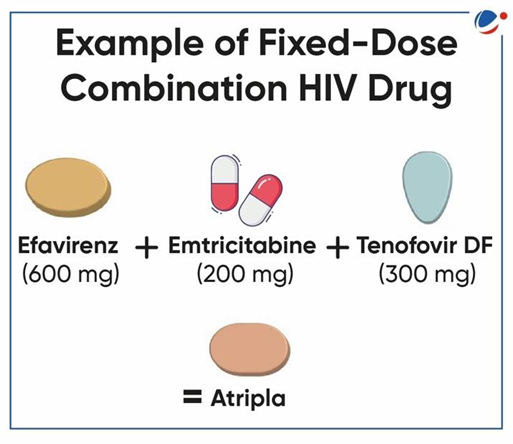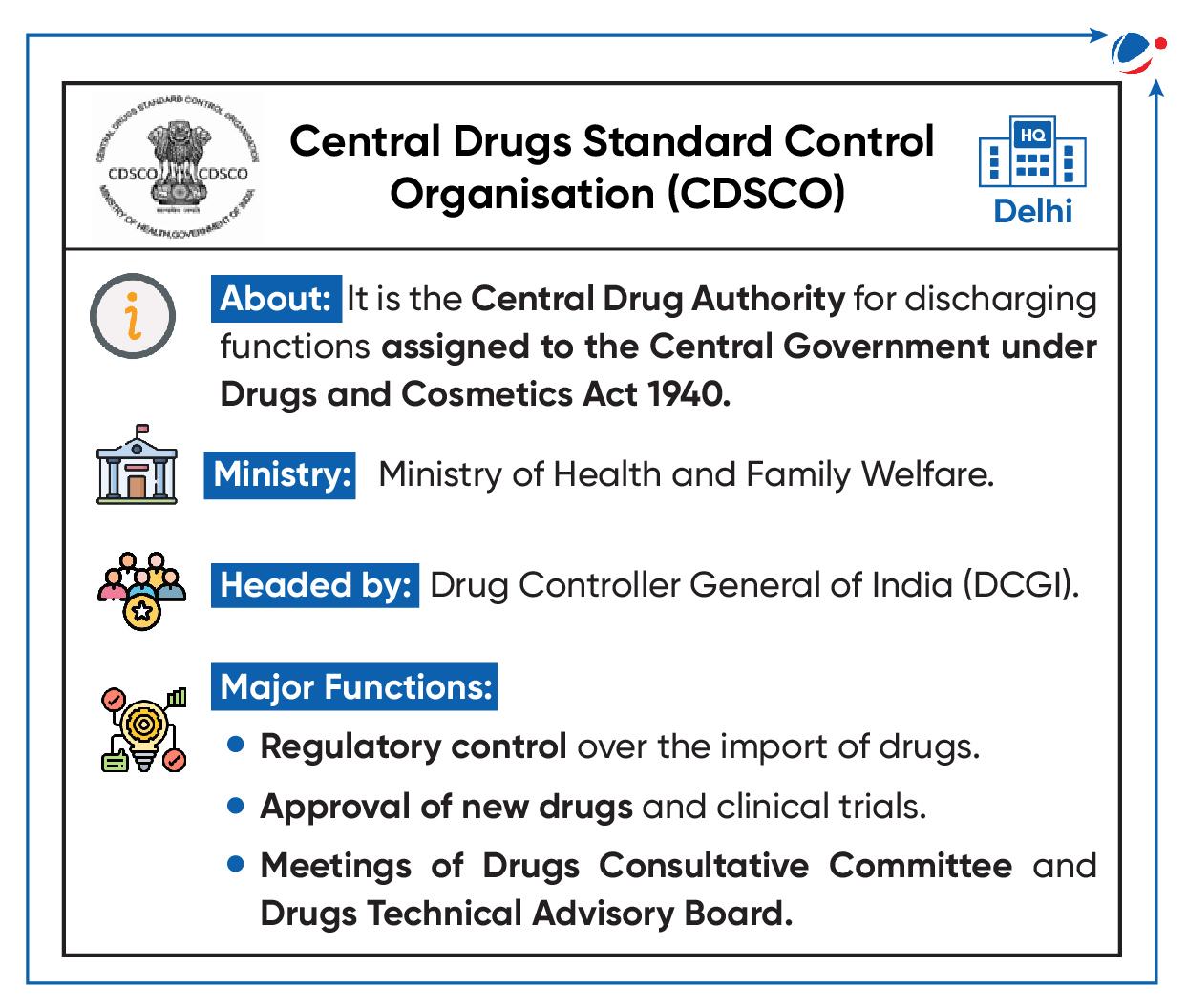Why in the news?
The Central Drugs Standard Control Organization (CDSCO) has allowed companies to manufacture and market five fixed dose combinations (FDCs) that were banned last year.
More on the News
- These five drugs are allowed to manufacture and sale with certain conditions which include
- Providing safety and efficacy data on three drugs within one year.
- Two need their dosage and information labels adjusted.
- Earlier, in a similar move, Central government banned 344 combinations in 2016, citing public interest.

About Fixed Dose Combinations (FDCs) Drugs
- As per Rule 122-E of Drugs & Cosmetics Rule 1945, FDCs refer to products containing two or more active ingredients used for a particular indication(s).
- An FDC is a new drug when it meets two conditions
- It combines two or more drugs already approved for individual use in a fixed ratio.
- It alters the ratio of drugs in an already approved FDC, along with making changes to its claims
- Mostly FDCs are in combinations of cough, cold, and fever preparations; antimicrobials; vitamins and minerals etc.
- In 2015, out of 376 entities, 24 entities were FDCs in National List of Essential Medicine.
Rationale for Usage of FDCs:
- Enhanced efficacy: In some cases, combining specific drugs in a fixed ratio can achieve better therapeutic outcomes than using them individually.
- Cost-effectiveness: FDCs can sometimes be more affordable than purchasing individual medications separately, particularly in developing countries.
- Reduced pill burden: Taking fewer pills can improve convenience and patient compliance, especially for those with multiple chronic conditions.
- Improved adherence: Combining multiple medications into one pill can simplify treatment regimens, leading to improved medication adherence, especially for chronic conditions.
- Improved patient convenience: Taking fewer pills can improve convenience and quality of life for patients, especially those with multiple chronic conditions who might otherwise struggle with complex medication regimens.
Issues associated with FDCs:
- Lack of individual dose flexibility: FDCs offer a fixed dose of each component, which may not be suitable for all patients, especially those requiring different dosages due to age, weight, or other factors.
- Unapproved and Banned FDCs: The easy access to untested and unlicensed FDCs in countries like India creates a potentially hazardous situation for public health.
- For example, a study conducted in Ahmedabad, revealed that FDCs containing banned or controversial ingredients are prescribed widely.
- Increased risk of Anti-microbial Resistance (AMR): Combining medications in FDCs raises the risk of adverse events and AMR due to potential interactions and overuse.
- Reduced transparency and affordability concerns: In some cases, FDCs may be priced higher than their individual components, raising concerns in resource-limited settings.
- Ethical concern: India imposed ban on certain FDCs, however, there is no ban on same drugs being exported to African or SAARC countries. Their export is deemed legal if the importing country has no objections.
- Limited choice for patients: The fixed combination may not always be the most suitable for individual patient needs, limiting treatment options.

Way Forward
- Regulatory Stringency: CDSCO should enforce stringent guidelines for FDC approval to protect public health and ensure the efficacy and safety of drugs.
- Evidence-Driven Authorization: Require robust scientific evidence of FDC efficacy and safety to prevent unjustifiable combinations and enhance regulatory scrutiny.
- Therapeutic Justification: Grant approval for FDCs only when individual components offer clear therapeutic benefits, avoiding unnecessary amalgamations.
- Surveillance Systems: Establish vigilant post-market monitoring mechanisms for prompt detection and resolution of FDC-related adverse effects, prioritizing public safety.
- Export Control Stringency: Harmonize export policies with domestic regulations to prohibit the overseas export of domestically banned or restricted FDCs.
- Advocate Transparency and Affordability: Promote openness and cost transparency, facilitating generic availability of FDCs to enhance affordability, particularly in resource-constrained regions.
- Public Awareness: Educate healthcare professionals and the public on the judicious use of FDCs, promoting responsible medication practices.





